
You are warmly invited to attend Rabbi Shimson Isaacson’s lesson
Everything You Need to Know about Passover
at 7:30 P.M. on March 30 at the Choral Synagogue at Pylimo street no. 39 in Vilnius.


You are warmly invited to attend Rabbi Shimson Isaacson’s lesson
Everything You Need to Know about Passover
at 7:30 P.M. on March 30 at the Choral Synagogue at Pylimo street no. 39 in Vilnius.

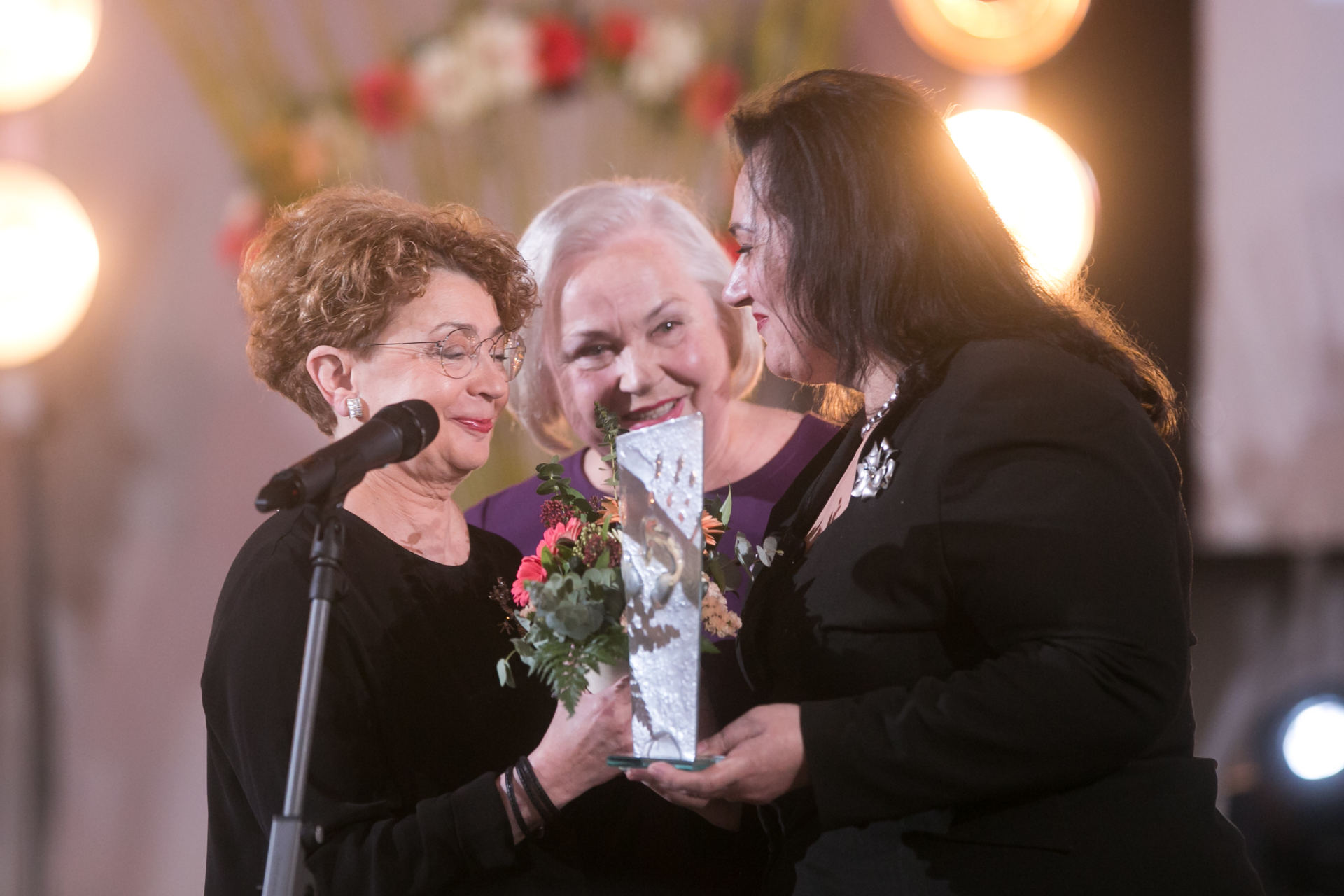
Vilnius, March 30, BNS–The fourth National Equality and Diversity Awards recognized the contributions of Lithuanian philosopher Leonidas Donskis who died last year.
The gender equality award was presented to Vilnius Crisis Center director Nijolė Dirsienė for her many years of caring for women suffering domestic violence and active work over 20 years in preventing violence. In the break-through category the Baltic Pride gay march organizers got the award, according to event spokespeople.
The ceremony held at the Royal Palace in Vilnius Wednesday handed out ten awards for achievements and initiatives over the last year.
The award for dialogue between peoples went to Vilnius Ukrainian Association chairwoman Natalija Šertvytienė for active work in expanding ethnic dialogue in Lithuania, preserving the Ukrainian ethnic identity and aid in integrating Ukraine in Europe.
The Lithuanian Jewish Community and other ethnic communities and public organizations appreciate the National Equality and Diversity Awards includes a nomination for “Dialogue between Peoples.”
As a member of an ethnic minority, I feel a more enlightened view in society on topics such as the Holocaust and xenophobia. People are slowly coming around to asking questions, engaging in discussions and thinking about the issues. Four years ago the Lithuanian Jewish Community began the Bagel Shop tolerance campaign which opened the Community’s doors to the public and made Jewish culture and history more accessible and, of course, more attractive. When the Community opened its doors, the public opened their hearts to the Community. I would like to thank everyone who took an interest and participated in this tolerance initiative which I believe marked the beginning of a small “dialogue between peoples” revolution. I present the highly esteemed candidates for the “Dialogue between Peoples” award:
Marius Ivaškevičius, the force behind the March of Memory dedicated to the murdered Jewish community of Molėtai. A record number of people turned out to remember and honor those killed, up to 3,000 participants marched along the last route taken by the victims of genocide perpetrated by Lithuanian hands.

Efraim Zuroff of the Simon Wiesenthal Centre in Jerusalem has said the Lithuanian authorities were “very culpable.”
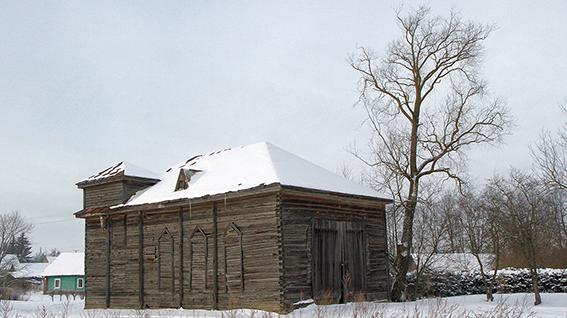
A derelict shul in Vilnius (Getty Images)
Lithuanian parliamentary ombudsman Augustinas Normantas has refused to open an investigation into a complaint that his country’s Genocide and Resistance Center presents a revisionist version of wartime history.
Instead, the ombudsman said that the center itself must address the issue first, and “if its answer is disputed, then in a court of law.”
The complainant, Grant Gochin, has challenged the Genocide Center’s description of Lithuania’s wartime treatment of its Jews, calling it “a distortion of history and an insult to the Jewish citizens of Lithuania.”
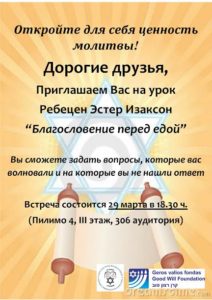
Rebbetzin Esther Isaacson invites you to a lesson in Russian on the blessing of food. Come, listen and let’s find out the answers together. The lesson will be held at 6:30 on Wednesday, March 29 in auditorium no. 306 on the third floor of the Lithuanian Jewish Community located at Pylimo street no. 4 in Vilnius.
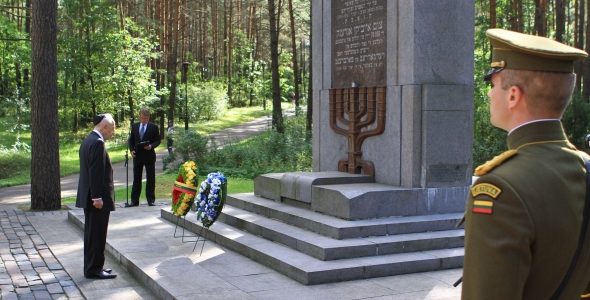
Then-president of Israel Shimon Peres at Ponar in 2013. Photo: AFP/Scanpix
Vilnius, March 27, BNS–The mass murder site established by Nazi Germany in Ponar outside Vilnius during World War II was three times larger than the memorial complex there now, Lithuanian historians have discovered.
“The memorial is only a small part of the Ponar murder operation site. It might have covered 65 hectares, but the memorial complex/museum there occupies 19 hectares,” Lithuanian History Institute researcher Saulius Sarcevičius told BNS Monday. He said researchers working at the site since last year have discovered five new mass murder pits and additional research is being carried out on two of them.
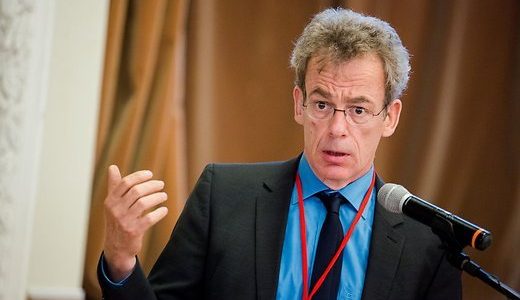
Dr. Christoph Dieckmann. Photo by Karolina Pansevič, © 2017 Delfi.lt
Effective cooperation between Germans and Lithuanians became a fatal trap for Lithuanian Jews. It was patriots–ethnic nationalists–who murdered the Jews in Lithuania, hoping to form a strong nation-state without Jews, Russians and Poles.
So German historian Christoph Dieckmann said in an exclusive interview with Delfi.lt. Dieckmann, who works at the Fritz Bauer Institute in Frankfurt, is the author of the two-volume Deutsche Besatzungspolitik in Litauen 1941-44 published in 2011. As a member of the Lithuanian International Commission to Assess the Crimes of the Nazi and Soviet Occupational Regimes, Dieckmann raises a painful moral question: why didn’t the Lithuanian people, seeing and hearing the Jews being murdered around them, protest? He believes it’s largely due to the position of the Church, which he believes was only concerned with what to do with the property of Jewish converts to Catholicism.
Full story in Lithuanian here.

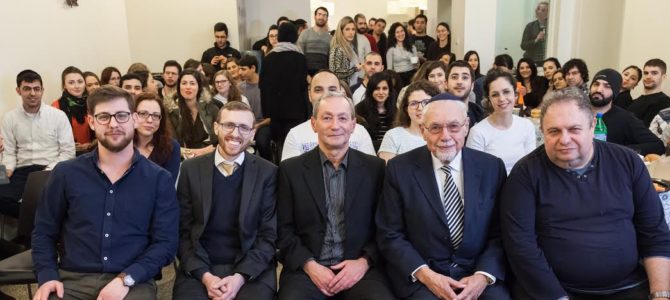
For a decade now there has been a club for Israeli young people studying in Kaunas. The club meets at what is called the Kaunas Jewish Center in the center of town. Currently about 130 students from the Lithuanian Health Sciences University attend regularly and all Jewish students in Lithuania are welcome.
The center features a synagogue, the student club and a kosher food restaurant for students, and hosts events and holiday celebrations. A mikvah for married women is to be set up before Shavuot this year. Rabbi Moshe Sheynfeld and his right-hand man Aleks Minin run the center. Minin helps with the daily tasks and making new ideas real. The founder, financial supporter and tutelary spirit of the center is William Shtern, who says he’s happy the students have found a small piece of Israel in Kaunas, their second home, where they can further their own identities, but he says he is even more glad they are meeting one another, becoming friends and even starting families.
The Kaunas Jewish Community has been working with Shtern and his center for several years now and acts as partner in certain center projects, and people from the center attend Kaunas Jewish Community events. Every Friday people from the center donate fresh challa bread for the Kaunas Jewish Community’s Sabbath dinner.
You can find out more about the Kaunas Jewish Center here.
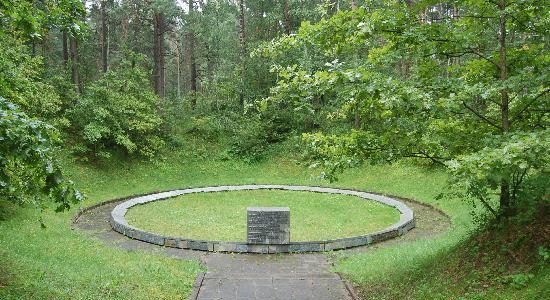
Three years ago archaeological digs began and are on-going at the Ponar Memorial Complex, and in 2015 two more killing pits were discovered, previously unknown, and a more-accurate perimeter of the mass murder site was determined. Saulius Sarcevičius, director of the Urban Research Department at the Lithuanian History Institute, says these discoveries are not only new, they’re unique. “Ponar, established as a so-called base, was not just any mass murder site, but was a precisely planned–down to the finest details–and built and continuously improved murder factory. The incomprehensible action of this mechanism has literally gone to ground and the traces discovered in the reconstruction relief map makes us living witnesses to these crimes which the Nazis tried so hard to hide,” the Lithuanian History Institute historian told the audience at the first International Holocaust Remembrance Alliance conference held in Vilnius.
The Lithuanian Special Unit, or Ypatingasis būrys, subordinate to the Nazi security service, murdered around 100,000 residents of Vilnius and Eastern Lithuania based on racial considerations from 1941 to 1944, most of them Jews. The Ponar site on the edge of Vilnius is the largest Holocaust mass murder site in Lithuania and is well known internationally.
Full story in Lithuanian here.
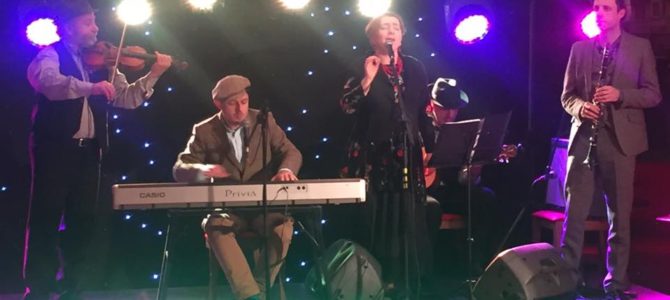
The Klaipėda Jewish Community held a concert March 22 by the Klezmasters led by Lev Sandiuk and vocalist Alina Ivakh with solo performances by Mikhail Blinkov on clarinet and Aleksei Rozov on violin. The group performed songs in Yiddish as well as Hebrew, Lithuanian, Ukrainian, Russian, Belarusian and even Azeri. The concert was held as a sort of joint celebration of Purim, the happiest of Jewish holidays, and the International Day of Happiness. The Purim holiday was presented to the multicultural audience. The concert went late into the night and Klaipėda municipal officials and members of the various ethnic communities in Klaipėda thanked the organizers for the good time had by all.
For more, see here.
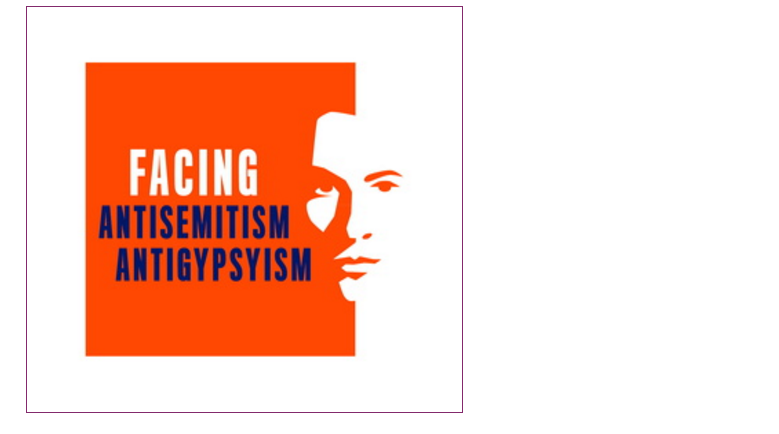
Remembrance. Responsibility. The Future. These are the sequential steps leading to real changes in society. The future of democracy and tolerance depends on memory and responsibility assumed, allowing for moving forward. A step towards the future–after surveying, judging and adopting expertise from the best initiatives aimed at fighting discrimination–this is the goal of this new start-up project.
The new project is called Development and Publication of Recommendations for Actions to Fight Anti-Semitism and Romophobia in Lithuania.
The project is supported by the Erinnerung, Verantwortung und Zukunft foundation or EVZ in Germany. This foundation supports systematic and long-term studies of discrimination against and marginalization of Jews and Roma in Europe.
The Lithuanian Jewish Community has brought together a group of leading experts from among Lithuanian human rights organizations, community activists, academics and specialists from abroad. This group is undertaking to come up with effective and valuable recommendations on actions for fighting anti-Semitism and Romophobia in Lithuania.
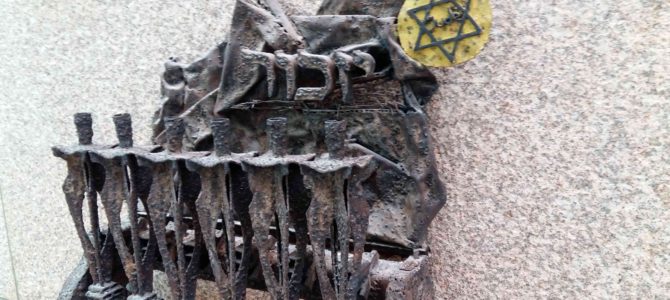
Employees of the Lithuanian Jewish Community’s Social Programs Department are currently visiting the Frankfurt Jewish Community in Germany. Under the EU’s ERASMUS program, ten center employees will learn from colleagues in Germany, Poland and France this year how best to expand the care and services network for the elderly and how to provide higher-quality services to our clientele.
Our employees studying practices in Germany are being hosted by our partner-organization Zentralwohlfahrtsstelle der Juden in Deutschland or ZWST. This is one of the organizations with the longest experience serving the elderly. Their main clients are Jews and their families who have immigrated from Eastern Europe. The LJC Social Programs Department wants to learn more about the standards of services provided, European perspectives and how to apply them in dealing with the problem of aging in the Community.
Below you will find some pictures and descriptions of the Frankfurt Jewish Community, the second-largest Jewish community in Germany about 60% of whose members hail from Russia, Ukraine and other countries. Members pay a membership fee based on their income tax.
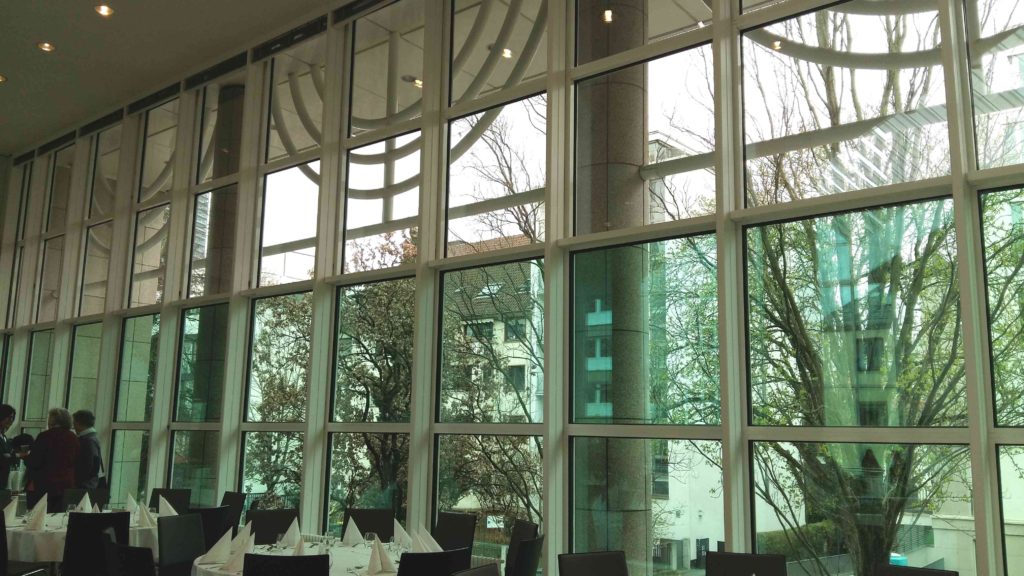
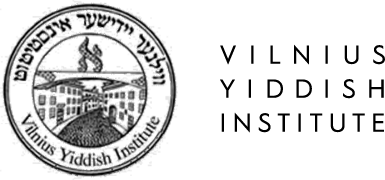
JULY 17 – AUGUST 11, 2017
Offering four levels of intensive language instruction:
YIDDISH I: for beginners
YIDDISH II: intermediate
YIDDISH III: higher intermediate
YIDDISH IV: advanced
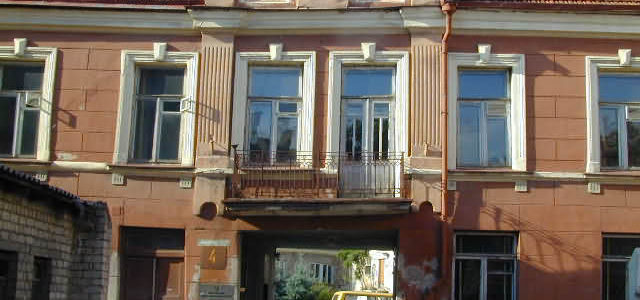
![]()
Vilnius, March 22, BNS–The building of a former Jewish library in Vilnius has been entered on the registry of cultural treasures and there are plans to house a Vilnius ghetto museum there.
The Cultural Heritage Department announced the building with a commemorative plaque at Žemaitijos street no. 4 is being provided legal protection for its valuable archaeological, architectural and historical characteristics. The first council for assessing real estate cultural heritage at the department made the decision.
Cultural Heritage Department director Diana Varnaitė the surviving building which was part of the Vilnius ghetto and where the Mefitsei Haskalah library operated and later the Vilnius ghetto library is not currently being used and belongs to the Vilna Gaon State Jewish Museum.
“At [the museum’s] initiative there are plants to set up a museum commemorating the Holocaust in Lithuania and the Vilnius ghetto which will exhibit the vast Jewish cultural heritage and the history of the Holocaust in Lithuania. The names of Holocaust victims are read out there annually to mark the day of Jewish genocide,” director Diana Varnaitė said.
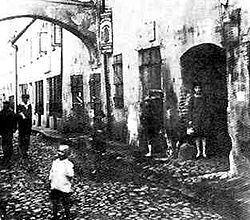
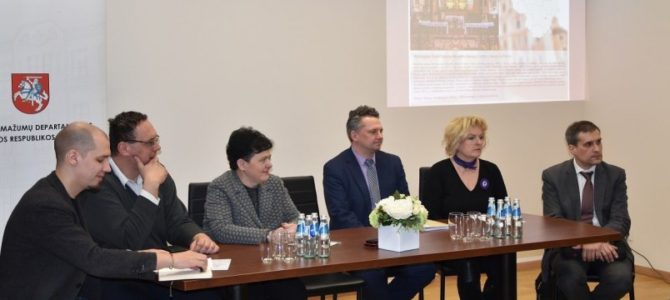
The Department of Ethnic Minorities under the Government of the Republic of Lithuania invited those interested in cultural heritage to the launch of their multimedia DVD March 16. The DVD presents moveable and non-moveable heritage objects and sites of ethnic minorities living in Lithuania. The disc contains panoramic photographs of Lithuanian ethnic minority heritage sites by photographer Kostas Šukevičius. This section of the disc includes heritage associated with the Polish and Jewish communities in Lithuania.
Speakers and participants at the event included Cultural Heritage Department director Diana Varnaitė, senior archivist of Lithuania Ramojus Kraujelis, acting director of the State Tourism Department Indrė Trakimaitė-Šeškuvienė, journalist and author Aurelija Arlauskienė who has written a number of books about Lithuanian cultural sites including about the Paulava Republic, and Lithuanian Jewish Community heritage specialist Martynas Užpelkis. Donatas Puslys, editor-in-chief of the website bernardinai.lt, was moderator.
Full story in Lithuanian here.
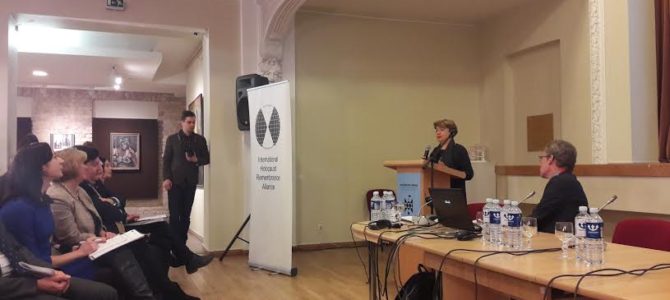
Vilnius, March 22, BNS–The two-day conference “The Beginning of Mass Murder: Identification and Remembrance of Mass Murder Sites from Summer and Fall of 1941” began at the Vilna Gaon State Jewish Museum in Vilnius Wednesday. Lithuanian Jewish Community chairwoman Faina Kukliansky was a speaker.
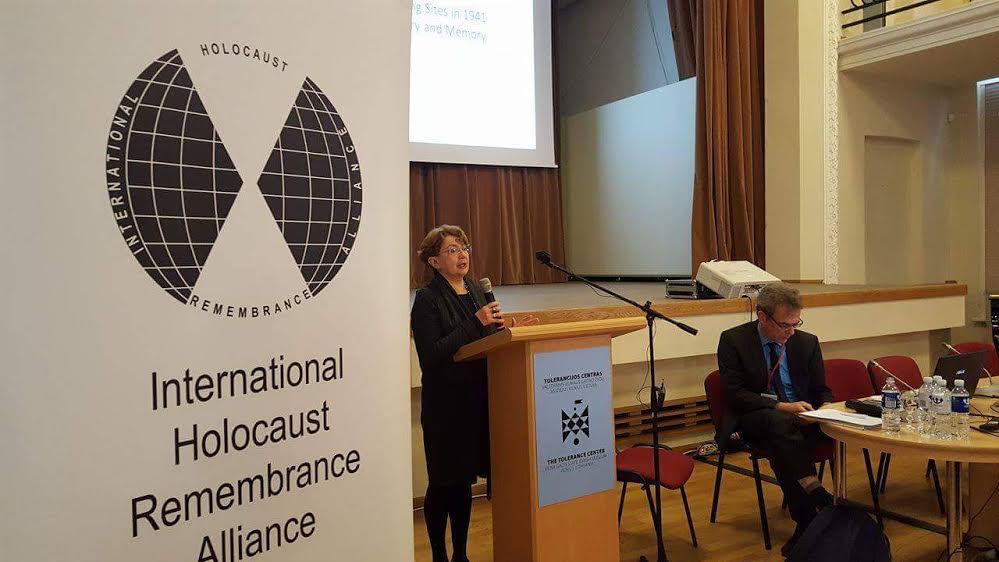
The International Holocaust Remembrance Alliance with 31 member-states and a number of historians, educators, museum specialists and other Holocaust researchers from around the world organized the conference. Lithuania acceded to IHRA membership in 2003 but this is the first time an international IHRA conference has been held in Vilnius, a museum representative said.
The two-day conference is being hosted by the Tolerance Center of the museum and is dedicated to identifying, marking and commemorating mass murder sites in the Baltic states, Romania, Ukraine and Belarus.
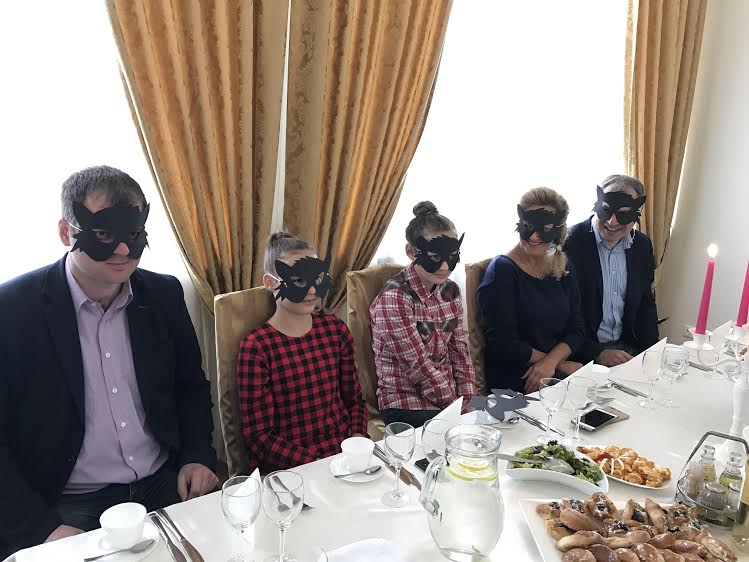
The Ukmergė Jewish Community celebrated Purim together in high spirits on March 19.
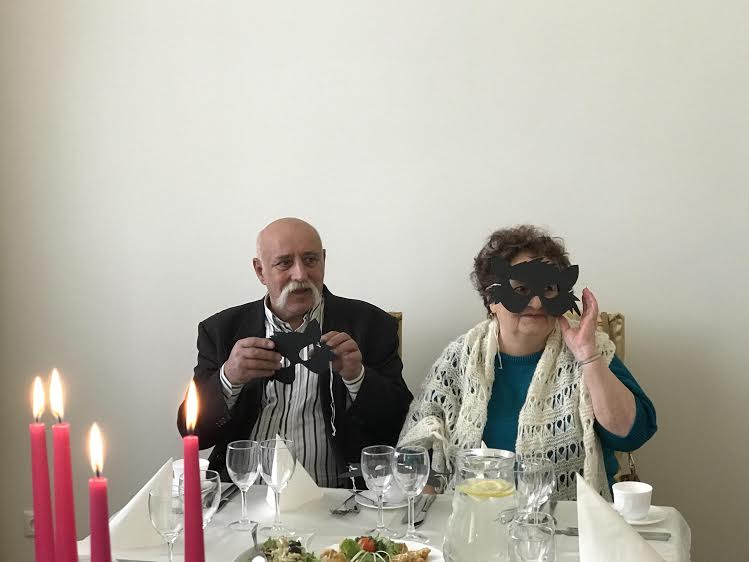

The Bagel Shop Café has started selling matzo and matzo flour, so we’d like to present some traditional Jewish dishes made from these items.
Matzo brei also known as matzo metugenet is a simple Ashkenazi dish whose name refers to matzo being fried. The dish is often made for breakfast during Passover.
You will need:
2 cups boiling water
5 eggs
6 matzo bread wafers
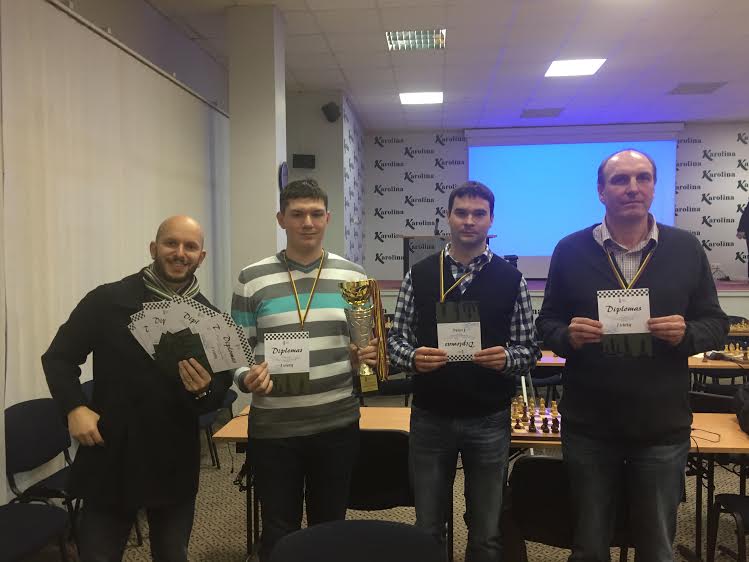
The third round of the Lithuanian Chess League was held in Vilnius over the weekend during which two tournaments were played and the strongest Lithuanian clubs emerged.
After two rounds (five parties) it seemed there would be no surprises this time. The MRU team dominated the championship winning all five matches for 10 points. Gigant Chess of Panevėžys was a close second with 8 points while Makabi and Margiris from Kaunas (a Lithuanian Chess League champion many times over) each lagged behind by a point at 7. In the sixth round MRU lost 1.5:3.5 to Makabi and Gigant Chess and Margiris each gained a point (2.5:2.5).
Before that fateful round MRU was still out in front with 10 points, but Makabi and Gigant Chess were already hard on their heels, both teams holding 9 points. In the last round the chess players weren’t entirely focused on their own games and kept track of the competition as the situation dramatically changed and made mental calculations about the points needed to end with a higher standing.
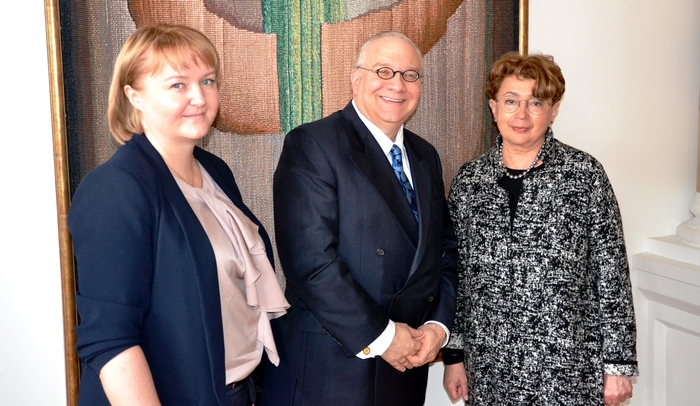
Lithuanian Jewish Community chairwoman Faina Kukliansky met with Glenn Drew, chief executive officer of the American Hebrew Academy, the international Jewish college preparatory boarding school with a distance-learning program via internet, on March 17 to discuss educational opportunities for members of the LJC and their children. The Baltic Council for International Education facilitated the meeting.
Mr. Drew first visited Vilnius in October, 2016. Reading recently about the Lithuanian Jewish Community’s chairwoman and her work, he decided to make contact with the Community directly.
In a letter to the chairwoman sent before the meeting, Mr. Drew wrote:
“I spend a considerable amount of time traveling around the world visiting Jewish communities to inform them about opportunities for Jewish teenagers to study and the American Hebrew Academy in the United States. During my visit to Vilnius, I welcome the opportunity to meet with you and your board. I believe we share many common interests and would like to explore how we may collaborate in the future.